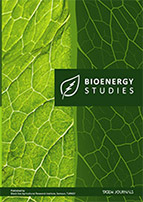Turkish Journal of Fisheries and Aquatic Sciences
2024, Vol 24, Num, 1 (Pages: TRJFAS23922)
Antimicrobial Peptides from fish: Main Forces for Reducing and Substituting Antibiotics
2 Shandong Binzhou Animal Science and Veterinary Medicine Academy, Binzhou 256600, China DOI : 10.4194/TRJFAS23922 Viewed : 758 - Downloaded : 744 Fish antimicrobial peptides (AMPs) are small molecular peptides with biological activity that play an important role in the fish immune system. They not only have broad-spectrum activity against a variety of viruses, bacteria, fungi, parasites, and cancer cells but also show immunomodulatory activity in different fish. However, the defects of natural fish AMPs, such as their high hemolytic activity and low stability, hinder their application. Therefore, many scientists have tried to optimize the sequence and structure of fish AMPs to meet actual clinical needs. In addition, as the most promising alternative to antibiotics, fish AMPs have good application prospects in animal husbandry, food, biomedicine, and other fields. Many fish AMPs are being researched and developed by scholars around the world. This paper summarizes literature reports regarding the classification of antibacterial peptides and their biological functions and applications, emphasizing their transformation and optimization and the latest research progress to provide a theoretical basis for the research and development of antibacterial peptides as well as technical support for the production of related products. Keywords : Antimicrobial peptides Aquaculture Antimicrobial Antiviral Antiparasitic Antifungal
















